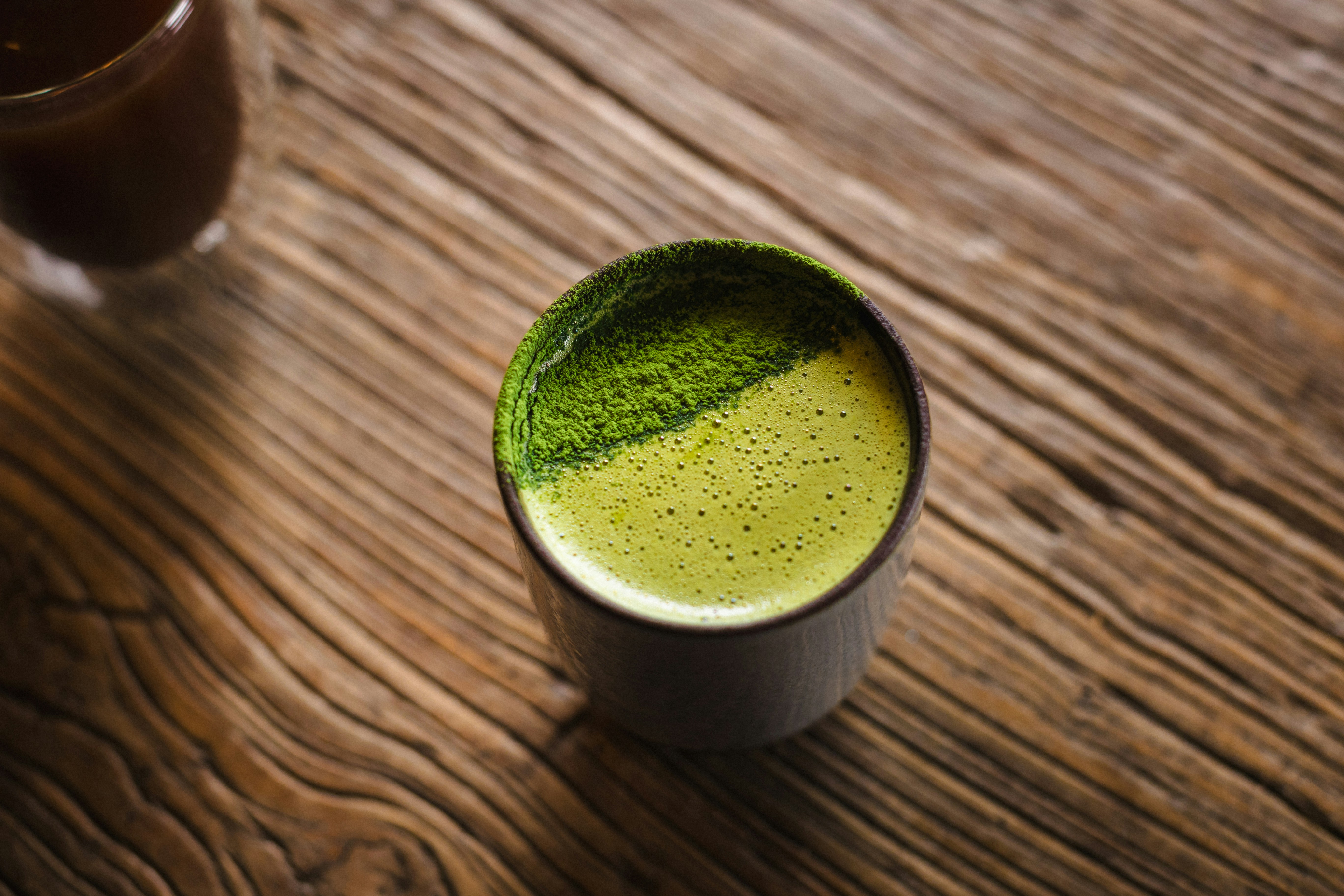Introduction: Embracing Stress as a Gateway to Meditation
Stress is often perceived negatively, regularly associated with physical tension and emotional turmoil. However, a growing body of evidence and anecdotal experiences suggests that stress can paradoxically serve as a catalyst for deepening one’s meditation practice. By embracing stress, individuals may find opportunities for profound personal growth and spiritual exploration. This seemingly contradictory relationship highlights the complexity of the human experience, wherein challenges can also be sources of strength.
Consider the experience of numerous meditation practitioners who report that facing stressful circumstances spurred them towards deeper introspection. For instance, an individual may find themselves overwhelmed by daily responsibilities, leading to a heightened awareness of their mental state. In such instances, one might turn to meditation not just as an escape but as a tool for processing and understanding their stress. The act of confronting stress through meditation often reveals insights that may have remained hidden in the chaos of everyday life.
Another important aspect to explore is how stress can enhance focus during meditation. The feeling of being overwhelmed can lead one to actively seek out a meditative state as a refuge. Paradoxically, this urgency can sharpen attention, facilitating a more profound engagement with meditative techniques. As practitioners delve into mindfulness, they may discover that their stressful thoughts, instead of being distractions, offer valuable lessons about their mental patterns and emotional responses.
Throughout this blog, we will invite readers to reflect on their own experiences with stress and meditation. By recognizing stress not merely as a challenge but as a potential tool for spiritual growth, individuals can unlock new dimensions of their meditation practices, fostering a holistic approach to both their mental well-being and personal development.
Understanding Stress: A Double-Edged Sword
Stress is a complex physiological and psychological phenomenon that encompasses various definitions and classifications. Generally, stress can be defined as the body’s response to any demand or challenge, often characterized by both physical and emotional reactions. Physiologically, stress triggers the release of hormones such as cortisol and adrenaline, which prepare the body to address perceived threats, a reaction often referred to as the “fight or flight” response. While common understanding associates stress with negative consequences, it is important to note that stress can manifest in different forms, notably eustress and distress.
Eustress is the positive form of stress that may enhance performance, motivation, and engagement. This type of stress often accompanies situations such as the anticipation of a significant life event, like a wedding or a job promotion. In contrast, distress refers to the negative aspects of stress, which can lead to feelings of overwhelm, anxiety, and fatigue. Chronic distress emerges when stressors are persistent and unmanageable, contributing to various health concerns such as heart disease, mental health disorders, and other physical ailments. Therefore, understanding the dual nature of stress is crucial when considering its impact on personal well-being and practices such as meditation.
In the context of meditation, recognizing how stress influences our mental state can provide valuable insight into utilizing it as a tool rather than a hindrance. For instance, the awareness of stress allows individuals to create an environment where they can channel their energy into mindfulness practices. By understanding stress, individuals can cultivate resilience, enhancing their ability to meditate effectively. Thus, the relationship between stress and meditation becomes a dynamic process that can empower individuals to harness the motivating aspects of stress while mitigating its adverse effects.
Meditation: An Ancient Practice with Modern Relevance
Meditation has been a fundamental aspect of various cultures for thousands of years, offering individuals a means to attain a state of mental clarity and emotional stability. The origins of meditation can be traced back to religious and spiritual traditions, particularly within the realms of Hinduism, Buddhism, and Taoism. This practice has evolved over time, transcending its spiritual roots and developing into a diverse array of techniques that accommodate modern lifestyles.
Historically, meditation was utilized as a tool to connect with a higher consciousness and achieve spiritual enlightenment. Techniques such as mindfulness, concentration, and loving-kindness emerged to provide practitioners with methods to manage emotions and cultivate inner peace. As society progressed, the benefits of meditation began to be recognized beyond the confines of spiritual practice. It became increasingly popular as a technique for stress relief and emotional regulation, gaining traction particularly during the 20th century.
Today, meditation encompasses various forms, including mindfulness meditation, transcendental meditation, and guided imagery. These techniques often integrate principles of awareness and relaxation, allowing individuals to navigate the complexities of modern life with more ease. By focusing attention on the present moment, meditation provides a counterbalance to the ceaseless mental chatter and external stressors prevalent in contemporary society. Practitioners today engage with these ancient techniques not only for spiritual growth but also as a practical approach to coping with daily challenges, including stress. The adaptability of meditation reflects its enduring relevance, as people increasingly seek methods to enhance their well-being amidst the pressures of modern living.
Furthermore, research supports the idea that regular meditation practice can lead to significant improvements in mental health, including reduced anxiety and enhanced emotional resilience. This empirical evidence reinforces the notion that ancient practices can be harmoniously integrated into contemporary lifestyles, making meditation an invaluable resource in achieving balance and tranquility in today’s fast-paced world.
The Science Behind Stress and Meditation
Stress is a prevalent condition affecting individuals across various demographics. Scientific research has consistently highlighted the significant relationship between stress reduction and meditation practices. Numerous studies indicate that meditation can be a powerful tool in managing stress and enhancing overall mental health. Through meditation, individuals learn to cultivate mindfulness, a practice that fosters awareness of present experiences and reduces the tendency to ruminate on stressful thoughts.
One landmark study published in the journal Health Psychology revealed that participants engaging in mindfulness meditation displayed notable reductions in perceived stress levels. After a period of consistent practice, participants reported not only a decrease in stress but also improvements in mood and emotional regulation. These findings underscore the potential for meditation to serve as an effective intervention in stress management. Additionally, neuroimaging studies have found that regular meditation can lead to structural changes in the brain, particularly in areas associated with emotional regulation and stress response.
Another significant body of research explored the physiological effects of meditation on stress. Studies have shown that mindfulness meditation can help lower the production of cortisol, the hormone responsible for stress responses. By consistently engaging in meditation, individuals may find themselves better equipped to confront stressors with resilience. Furthermore, meditation has been linked to enhanced relaxation responses, which trigger a cascade of physiological benefits such as decreased heart rate and improved immune function.
In summary, the scientific evidence supporting the link between stress reduction and meditation advocates its incorporation into daily routines. Individuals considering meditation practices should approach them with an informed understanding of the tangible benefits that can arise from regular mindfulness engagement. By capitalizing on the findings of scientific studies, practitioners can more effectively harness the power of meditation to mitigate stress and foster a healthier mental state.
Personal Stories: Transforming Stress into Stillness
Many individuals have experienced profound personal transformations by utilizing stress as a focal point for their meditation practice. One compelling story comes from Sarah, a high school teacher who faced considerable anxiety during the academic year. Faced with tight deadlines and the demands of her students, she turned to meditation not as a means to escape her stress but rather as a platform to confront it. Initially, her sessions were marred by racing thoughts and distractions, but gradually, she refined her technique by intentionally focusing on the feelings of unease that arose during meditation. This shift in perspective allowed her to transform her stress into an opportunity for self-reflection. Over time, Sarah found that these moments of stillness illuminated her coping mechanisms, leading to a clearer understanding of her emotional triggers.
Similarly, Michael, a yoga instructor, shares how he harnessed his competitive nature to deepen his meditation practice. Initially, he viewed stress as an impediment to finding peace. During a particularly intense yoga competition, he experienced overwhelming pressure, prompting him to explore the role of stress in achieving focus. Instead of battling with the anxiety, he began integrating it into his practice. When he sat for meditation, Michael channeled the intensity of his stress to cultivate an inner stillness. This radical approach not only relieved his competitive drive but also illuminated pathways to mindfulness that he had not recognized before.
Lastly, Elena, a meditation influencer, recalls how personal challenges transformed her journey. After experiencing a loss in her family, she initially found it difficult to meditate. However, rather than avoiding the pain, she learned to meditate on her grief. This process enabled her to honor her emotions while fostering resilience and acceptance. Through sharing her experiences, she has inspired countless followers to confront their stress head-on through meditation, illustrating that adversity can indeed serve as a powerful catalyst for growth and transformation.
Techniques for Converting Stress into Meditative Focus
Converting stress into a productive meditation experience involves a series of techniques aimed at harnessing the energy of stress, transforming it into a focused, calming practice. One widely recognized method is mindfulness meditation. This practice encourages individuals to become aware of their thoughts and feelings without judgment. By acknowledging stress and observing it, practitioners can begin to detach from it, making it less overwhelming. To initiate this process, find a quiet space, sit comfortably, and gently guide your awareness to the present moment, allowing thoughts of stress to come and go without engagement.
Another effective strategy is breath control, which serves as a powerful anchor during meditation. Stress often manifests in shallow or erratic breathing patterns. To counter this, individuals can practice deep, diaphragmatic breathing. Take a deep breath in through your nose, allowing your abdomen to expand, then exhale slowly through your mouth. This rhythmic breathing not only calms the mind but also provides a sense of physical grounding. Aim for a count of four while inhaling, holding for a count of four, and exhaling for a count of six. Consistent practice can enhance the ability to focus during meditative sessions, even amidst stress.
Visualization techniques can also be instrumental in shifting focus from stress to serenity. Envisioning a peaceful landscape or a place where one feels at ease can help redirect the mind. As you meditate, picture the stress melting away in this serene setting, replaced by feelings of tranquility and focus. This combination of mindfulness, breath control, and visualization effectively equips individuals with tools to transform their stress into a concentrated, meditative state, leading to a more fulfilling practice.
The Role of Spirituality: Finding Meaning in Stress
Stress is often perceived through a negative lens, but various cultures and spiritual traditions assert that it can also serve a transformative purpose in our lives. By examining the spiritual dimensions of stress, one might gain insight into how challenges can foster personal growth and deeper understanding. Many spiritual teachings emphasize the role of adversity as a catalyst for self-discovery. In this context, stress can be reinterpreted as a necessary part of the human experience that allows individuals to reflect on their values, priorities, and connection to the world around them.
For instance, in Buddhism, stress is seen as an intrinsic aspect of existence, which aligns with the notion of suffering in the Four Noble Truths. This perspective encourages practitioners to embrace stress, viewing it as an opportunity to cultivate mindfulness and compassion. Similarly, in Hinduism, the Bhagavad Gita teaches that life’s trials, including stress, serve a divine purpose and can lead to spiritual enlightenment. By navigating through stressful situations with a sense of purpose, individuals can discover meaning that deepens their meditation practice and enhances their overall well-being.
<pmoreover, a="" and="" approach="" are="" as="" awareness="" bring="" can="" create="" detrimental,="" develop="" during="" emerge="" emotional="" enrich="" experiences,="" find="" forth="" from="" health.
Challenges and Limitations: Navigating Stress Mindfully
While stress can serve as a catalyst for greater focus during meditation, it also presents challenges that practitioners must navigate thoughtfully. Indeed, the line between beneficial stress and overwhelming anxiety can be thin. When stress becomes excessive, it can interfere with a person’s ability to meditate effectively, leading to frustration and diminishing returns from their practice. Recognizing these limits is crucial for maintaining a balanced approach to meditation.
One significant challenge is the overwhelming nature of chronic stress, which can create a mental environment that is counterproductive to mindfulness. When stress levels escalate, they can trigger a fight-or-flight response, making it difficult to settle into a meditative state. Consequently, practitioners may find themselves distracted or agitated, hindering their capacity to engage deeply with their meditation.
Establishing clear boundaries is an essential aspect of managing stress in meditation practice. This may involve setting dedicated time for meditation, free from the interference of daily stressors. Additionally, integrating self-care routines—such as exercise, adequate sleep, and a balanced diet—can enhance one’s overall well-being, thereby creating a more conducive atmosphere for meditation. Understanding when to step back and seek professional help is equally important; if stress becomes unmanageable, it may signal the need for intervention, whether through counseling or support groups.
Practitioners should also remember that meditation is not a one-size-fits-all practice; different techniques may resonate more effectively depending on an individual’s stress levels. For some, guided meditations may offer a gentler entry point, while others might thrive in silent contemplation. Ultimately, achieving a healthy balance between the benefits of stress and its challenges is vital for developing a sustainable meditation practice. By incorporating these strategies, meditators can foster resilience and navigate stress mindfully, enhancing both their meditation experience and overall mental health.
Conclusion: Reflecting on the Journey from Stress to Serenity
In the quest to understand the connection between stress and meditation, it becomes evident that the two are closely intertwined. Stress, while often viewed negatively, can serve as a catalyst for deeper introspection and growth within one’s meditation practice. By acknowledging our stressors, we can begin to explore their underlying causes and, in turn, find methods to navigate them effectively. This exploration enables individuals to transform stress into a tool for self-discovery, ultimately enhancing their meditation experiences.
As you reflect on your own relationship with stress, consider how your experiences have shaped your approach to meditation. Struggles with daily pressures may initially seem overwhelming; however, they offer valuable opportunities for personal growth. Recognizing that stress can be an ally instead of an adversary may empower you to confront and embrace these challenges head-on, thereby enriching your meditative practices.
Moreover, it is important to foster a sense of community amongst those who share similar struggles. By connecting with others who face stress, you can exchange insights and techniques, creating a supportive network that encourages collective growth. Engaging in discussions about one’s personal journey can illuminate different ways of approaching both stress and meditation, ultimately leading to a more serene mindset.
In this light, it is essential to integrate the lessons learned from stress into your meditation routine. Whether through specific mindfulness techniques or reflective journaling after meditation sessions, actively leveraging your experiences can lead to profound transformations. By embracing your unique path, you not only contribute to your own serenity but also encourage others to embark on a similar journey of growth through meditation.








Leave a Reply